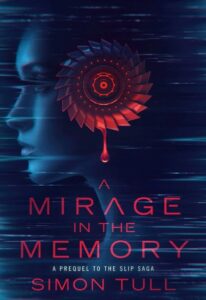Stars: 3 out of 5.
I like the concept of this book. This is a post-apocalyptic world where some humans have been turned into vampires… then exterminated normal humans. Now the world is ending, the civilization is crumbling, and the immortal vampires linger in sun-shielded cities under the tyrannical rule of a handful of families.
I was fascinated by the few glimpses we have of this world and I would have loved to learn more. Unfortunately, the author gives us only crumbs of information. Though I understand that this is a prequel, so maybe the events that led to the current state of affairs are explained in the main books.
My issue with this book is that even though the world is fascinating, I simply couldn’t empathize with the protagonist. Yes, he is haunted by the things he has done and the lover he was forced to leave behind, but it felt rather flat for me. I think I would have felt more invested in his plight if the author had introduced me to his relationship with his wife a bit more. Maybe in flashbacks or something. Or if I got to experience the event that made him leave her behind instead of just seeing it mentioned here and there. As it stands, I had no clear feel for their relationship, and no clue why he left her, or why he felt guilty about it.
I also need to mention that a lot of the choices the protagonist makes in this story are… questionable, to say the least. Not to mention that the ending is a complete downer. I mean, nothing was accomplished. Thibault is still as much of a slave as he ever was, AND he still doesn’t know where his wife is or if she is even still alive. So what was the purpose of all this?
I was honestly more interested in the side characters, like the burned hacker or the android mod builder. Them, I wouldn’t mind reading about. Thibault? Not so much.
PS: I received an advanced copy of this book via NetGalley in exchange for an honest review.










